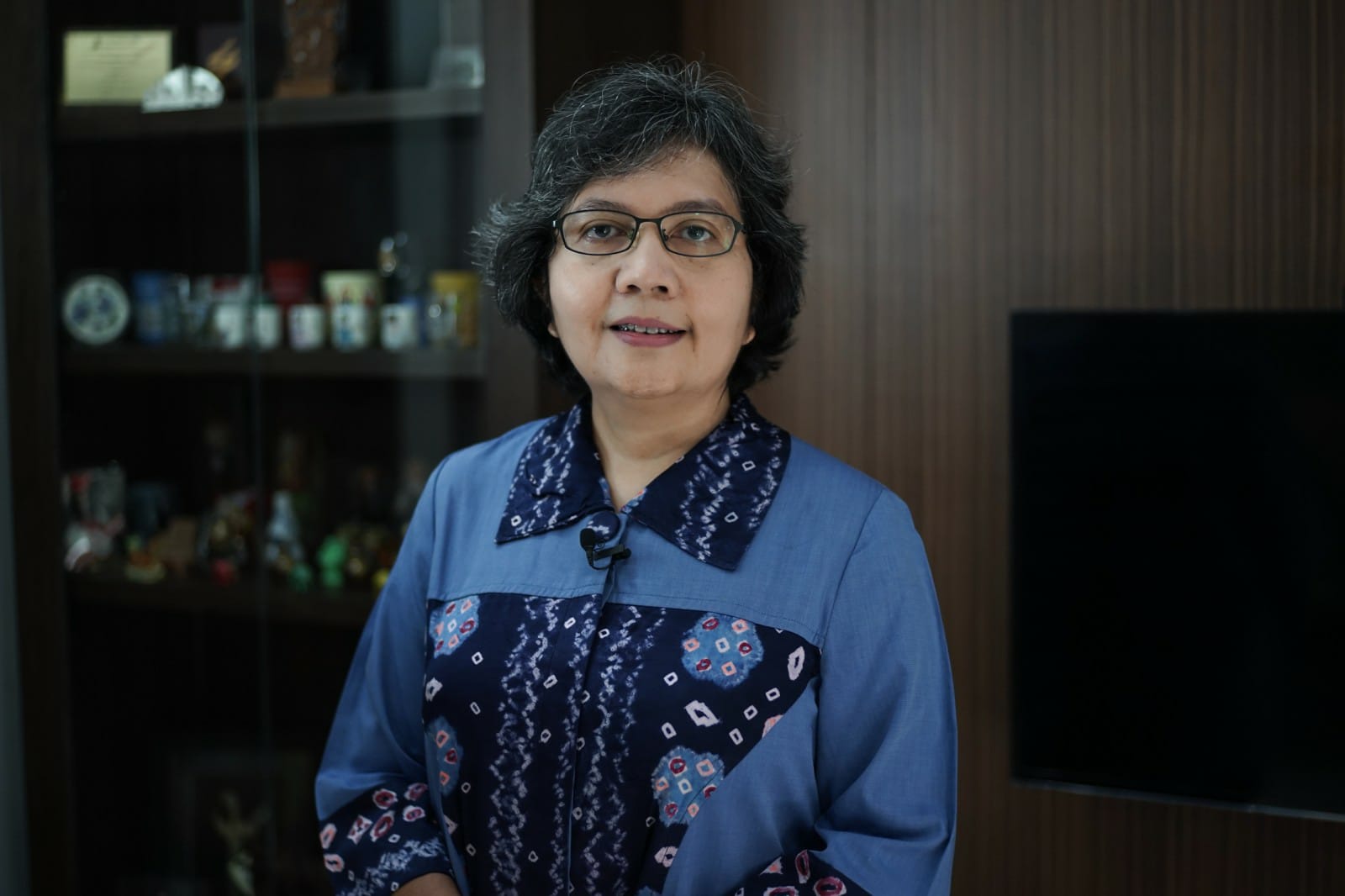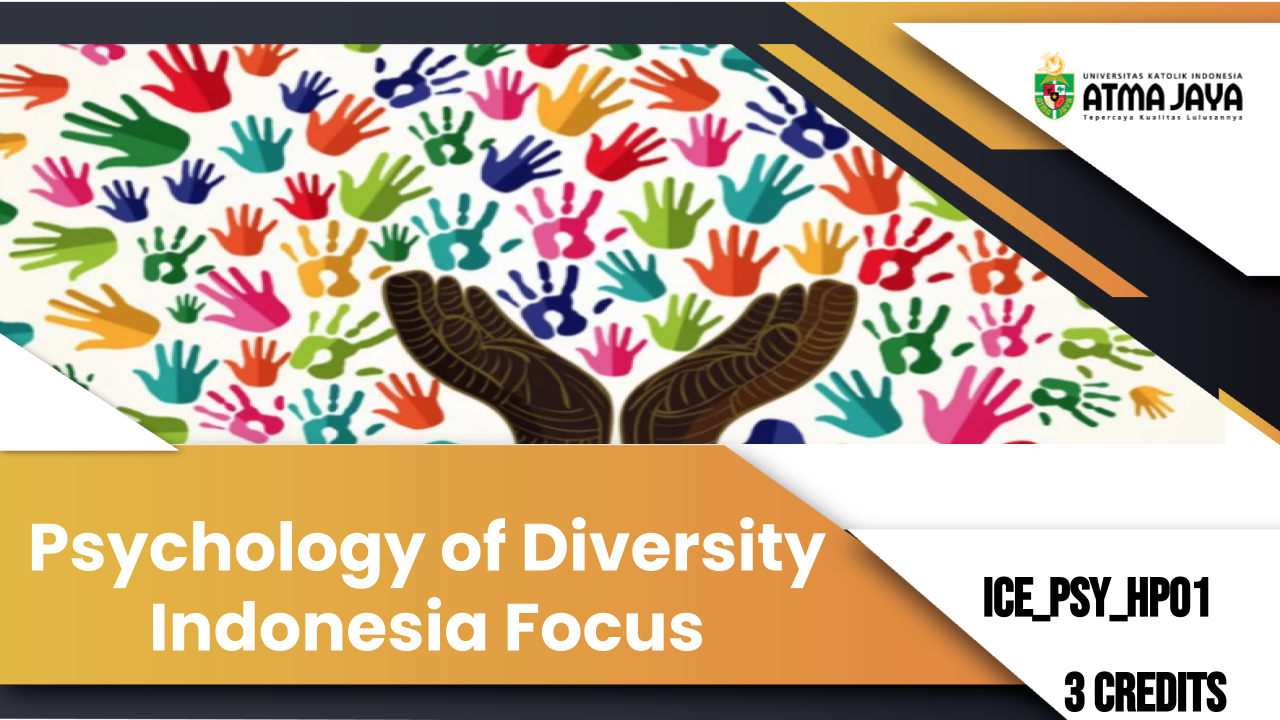About This Course
Diversity is our current reality. Domestic diversity has been around for centuries in pluralistic societies such as Indonesia. The globalised world over the last several decades brings along world diversity. We have been experiencing diversity in our life contexts, yet many people need a solid grip on the concept and the awareness to deal with it. This course will closely examine the psychology of diversity through its engaging lessons. Participants can learn about theories and research linking diversity and psychological processes in individuals and groups, both in social and organisational contexts. The course starts with the basic understanding of culture as a mental orientation system for groups, which serves as an individual mental compass for group members’ thoughts, beliefs and behaviour. The course discusses diversity as cultural engagements whereby culturally different people interact with each other. This will include strangeness and familiarity, culture shock, acculturation, and intergroup processes (unconscious bias, stereotype, prejudice). Lessons focus on five main diversity agents (gender, ethnicity, age, disability, national culture), the challenges and ways to manage them. Participants will learn about concepts and research on Indonesian perspectives on managing diversity. The course ends with a final project on diversity and inclusion management for specific groups.
Whether you are looking to improve your personal relationships, work more effectively in a diverse team, or simply gain a deeper understanding of the psychological mechanism at play in diversity, this class has something for you.
Learning Outcomes
Upon completion of this course, participants will be able to:
- Understand the concept of diversity and culture’s influence on interpersonal/intergroup behaviour in diverse contexts.
- Understand the psychological dimensions of the group and individual behaviour in diversity and be able to apply them for analysing cases on diversity.
- Understand how to deal with diversity on individual, group and organisational levels.
- Analyze diversity problems and design a diversity management program.
Entry Requirement
Undergraduate Psychology students (at least 3rd semester), Master students from any discipline, and a good command of English (reading, listening) is highly recommended.
About Instructor
 Prof. Dr.Phil. Hana Rochani G. Panggabean Psi.
Prof. Dr.Phil. Hana Rochani G. Panggabean Psi.
[email protected]
Hana Panggabean, Professor of Industrial and Organizational Psychology at the Faculty of Psychology, Atma Jaya Catholic University of Indonesia (AJCU). Hana graduated with a bachelor of psychology and psychologist from the University of Indonesia. She obtained a doctoral degree from the University of Regensburg, Germany, in Intercultural Psychology. Apart from teaching undergraduate and postgraduate study programs at the Faculty of Psychology, she teaches the Unika Atma Jaya certification programs, Certified Human Resource Program (CHRP) and Advanced Human Capital Accomplished (AHCA). Her work as an academic at AJCU includes research on topics of intercultural competence, intercultural communication and group diversity. Several studies that have been and are being carried out: State-own Enterprises Global Leadership Research sponsored by PT Wijaya Karya Tbk; research on Ethnic Identity and Nationality in Five Indonesian Ethnicities in collaboration with the Faculty of Psychology from various universities (USU Medan, UGM Jogjakarta, UMS Surakarta, Undhira Bali) sponsored by the Robert Lemelson Foundation, USA; research on sustainable energy as part of a research collaboration with the University of Applied Sciences Niederrhein,
Institut für Zukunfts Energie Systeme GmbH (IZES), Institute for Energy and Environmental Research (IFEU).
Working as a psychology practitioner in the industrial and organisational areas includes executive assessment, training and workshops in intercultural competence/communication, and managing organisational diversity.
Hana Panggabean is the co-founder of the Global Indonesian Network, a community of academics and practitioners focusing on dialogue and knowledge sharing regarding increasing the global competence of Indonesians.

